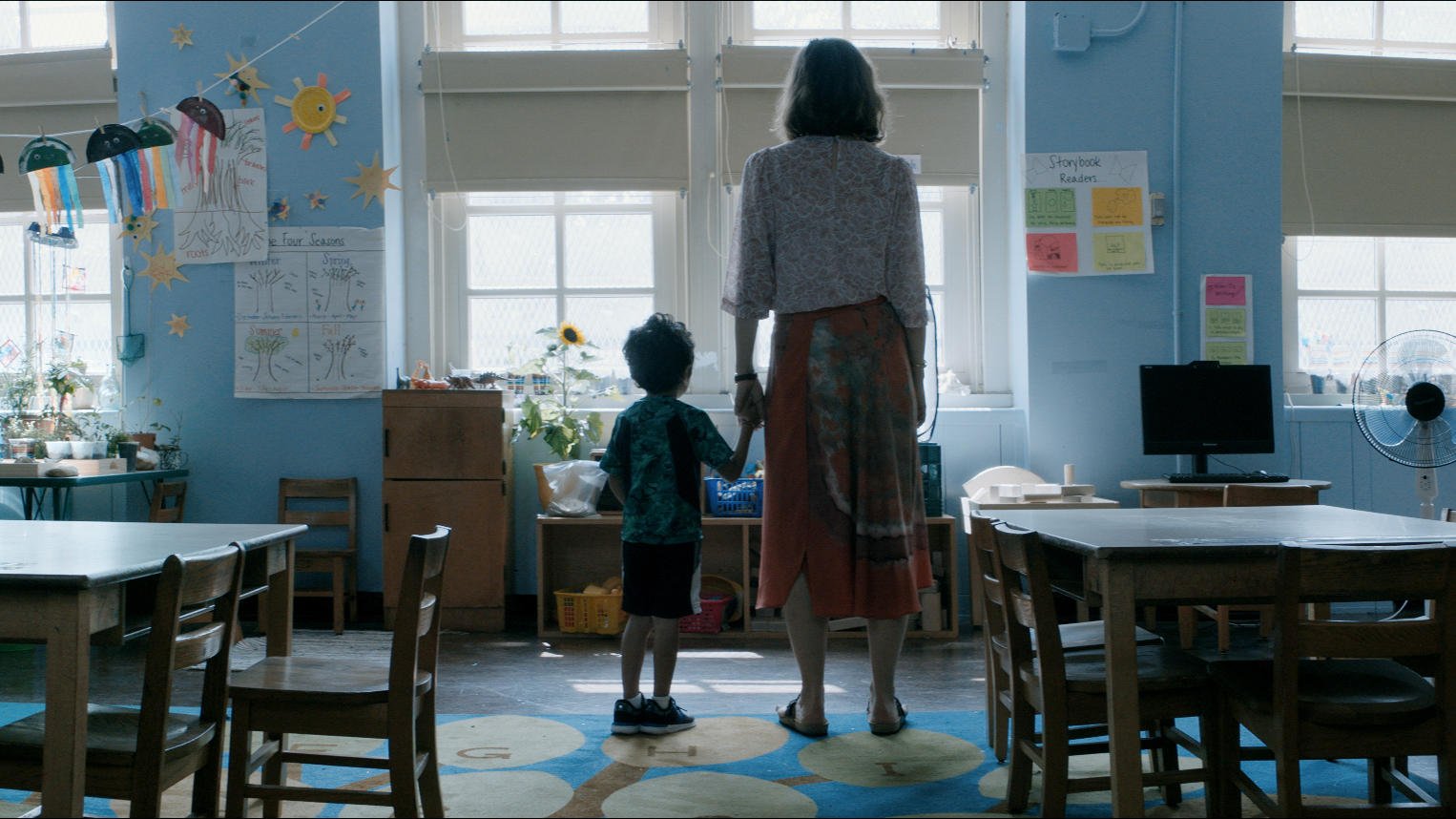Upon hearing that Netflix has released a new movie called “The Kindergarten Teacher,” one might think that the sprawling streaming service has unveiled another feel-good movie, a film that will warm one’s heart the way “To All the Boys I’ve Loved Before” did. That could not be farther from the truth.
The movie, a remake of a 2014 Israeli film (“Haganenet”), tells the story of Lisa, a kindergarten teacher who inhabits a dull vision of Staten Island. Lisa (Maggie Gyllenhaal) is clearly at odds with her environment, wearing flowing skirts and glittering necklaces that clash with the boring attitudes and outfits of her coworkers and family. She seeks to find meaning in continuing education poetry classes she attends in her evenings; however, even there her attempts at artistic expression are shot down as “derivative.” At home, she finds little consolation, her husband compliments her poetry, but his banal commentary makes Lisa feel worse. Moreover, her children are self-engrossed and unresponsive to her efforts to establish meaningful relationships with them.
One day after class, Lisa hears one of her students recite a poem he has written. Struck by the beauty of the verses, Lisa thinks that her student is a genius. Her intrigue with the child soon spirals into deep obsession.
The movie is immensely effective at making the audience cringe. Viewers wonder what Lisa’s intentions are and why she is encouraging this prodigy. These questions generate a high degree of tension and suspense throughout the film. The film’s ambiguity about the psychological motivations of the protagonist engender a great deal of anxiety in the audience without showing any graphic content.
The director, Sara Colangelo, lights most scenes in a realistic way. Since the cinematography does not set tones, the viewer must decide how they feel about the scene. This neutrality also lends an alarming feeling to the movie, as dark moments of psychological tension might occur within a sunny atmosphere. Moreover, there is little actual soundtrack in the movie, and when there is, it is usually diegetic, caused by an actual source in the movie. Once more, Colangelo refrains from using cinematic techniques to dictate the audience’s reaction.
The greatest part of the movie is Maggie Gyllenhaal’s performance. Our attempts to understand her psyche keep the movie intriguing. Gyllenhaal is remarkable at intimating what her intentions might be while remaining enigmatic. There are many scenes that show Lisa riding the ferry from Staten Island to Manhattan or walking the busy streets of New York City. In these moments, the camera often takes a long close-up of Lisa, forcing the viewer to wonder what she might be thinking. These moments showcase Maggie Gyllenhaal’s mastery of conveying inner turmoil with slight changes of her expression. As the plot develops, these scenes become more pressing as the audience tries to understand the depths of Lisa’s obsession.
Gyllenhaal also elevates moments that detail other facets of Lisa’s character and might have gone unnoticed in the hands of a lesser actress. Lisa is terrified of living in a world where art is being stripped of meaning, replaced by a sterile, scientific society. In the child prodigy, Lisa sees what WALL-E sees in his precious plant — the last glimpse of hope in a civilization consumed by a focus on “progress” that results in more damage than good. Lisa becomes more complex in these poignant scenes. She expresses the intense loneliness that develops because no one believes she can pursue her passion.
The plot of “The Kindergarten Teacher” is streamlined to the story of Lisa’s obsession with the child and her poetic journey, sometimes to the film’s detriment. Her outside world is portrayed only to reveal how these two facets are affecting her home life. Yet, the movie never fully delves into the dynamics of her home, although the few scenes that concentrate on domestic tensions are compelling. The movie tentatively initiates a few subplots in Lisa’s family life yet shies away from bringing them to any meaningful conclusion or development.
Besides this slight flaw, “The Kindergarten Teacher” is well worth watching, not only for Maggie Gyllenhaal’s brilliant and inspired performance but also for how it challenges the audience to judge the motivations and actions of characters on their own accord and to think about the place of the arts in the fabric of modern society.
Contact Juan Fueyo-Gomez at jfgomez ‘at’ stanford.edu.
